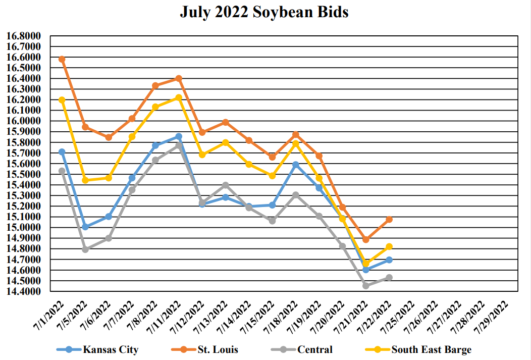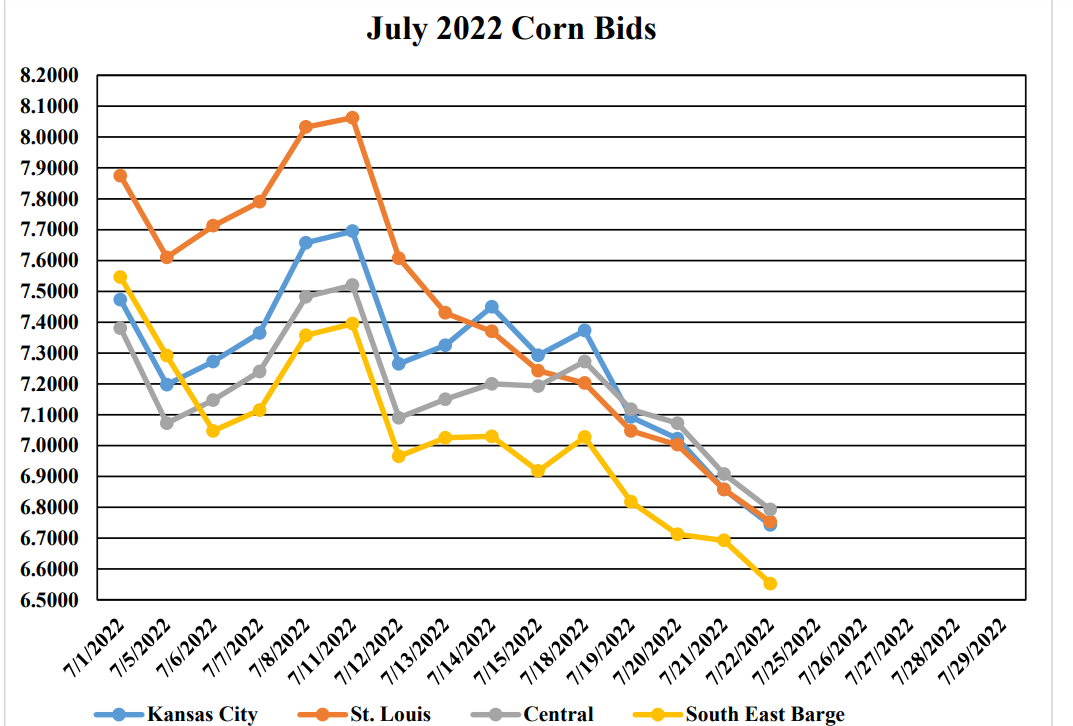Jefferson City, Mo. — The Missouri Department of Agriculture has released its weekly market summary. The report details the agricultural market for both produce and livestock across the state.
Drought conditions still persist in many parts of Missouri according to the report, with almost 3/4th of the state experiencing some sort of drought. Parts of Southern Missouri are still experiencing extreme drought conditions.
These conditions are likely to change by next week’s report as parts of Missouri, specifically the St. Louis area, experienced very heavy rains and flash flooding this week. Much-needed rain is also in the forecast for many parts of the state.
The hay crop continues to see some issues, following its troubling trend from the last report.
According to the report, 90% of the state’s hay has been cut. This is mostly due to persisting drought conditions, which has led many hay growers to cut their hay earlier than usual.
There is no hay shortage, supplies remain moderate and hay is relatively easy to access for those that did not grow or did not grow enough.
The cattle market also continues to see its fair share of issues as well. The amount of culled cattle in the state continues to rise according to the report. This rise is mostly due to weather conditions, as cattlemen cull their livestock at the market to ensure they can feed their herd over the coming fall and winter months.
The report also includes information regarding some of Missouri’s biggest crop markets.
Soybean bids are showing a slight climb in bid prices after dropping sharply for a few days straight. The bids for soybeans for the month have been very volatile.

Wheat bids have sharply declined over the past few days after a brief period of climbing. Wheat saw a steep decline two weeks ago, like soybeans, wheat has been very volatile in July.
Corn bids have been on a steady decline for most of the month, this week’s report is no exception.
Overall, the bids for Missouri’s crops are on the decline and have been for a large portion of the month.
Overall, the report is a look into how a summer drought has negatively affected some of Missouri’s largest industries and their relationships with each other. Hay and cattle are still in turmoil, although the full effects of the summer heat have yet to be seen.
The next weekly report will also include data that takes into account this week’s intense rainfall and even flooding in some areas, which will surely affect some of the agriculture industries in the state.
If you are in need of hay, go to the Department of Agriculture’s hay directory.
Featured Image Courtesy of the Missouri Department of Agriculture.
Kelton is a 2023 graduate of the University of Missouri with a Bachelor of Arts in Political Science and a Bachelor of Arts in Religious Studies. He is a native of mid-Missouri and likes to write politics at both the state and federal levels. Kelton joined the Missouri Times in April 2022




















